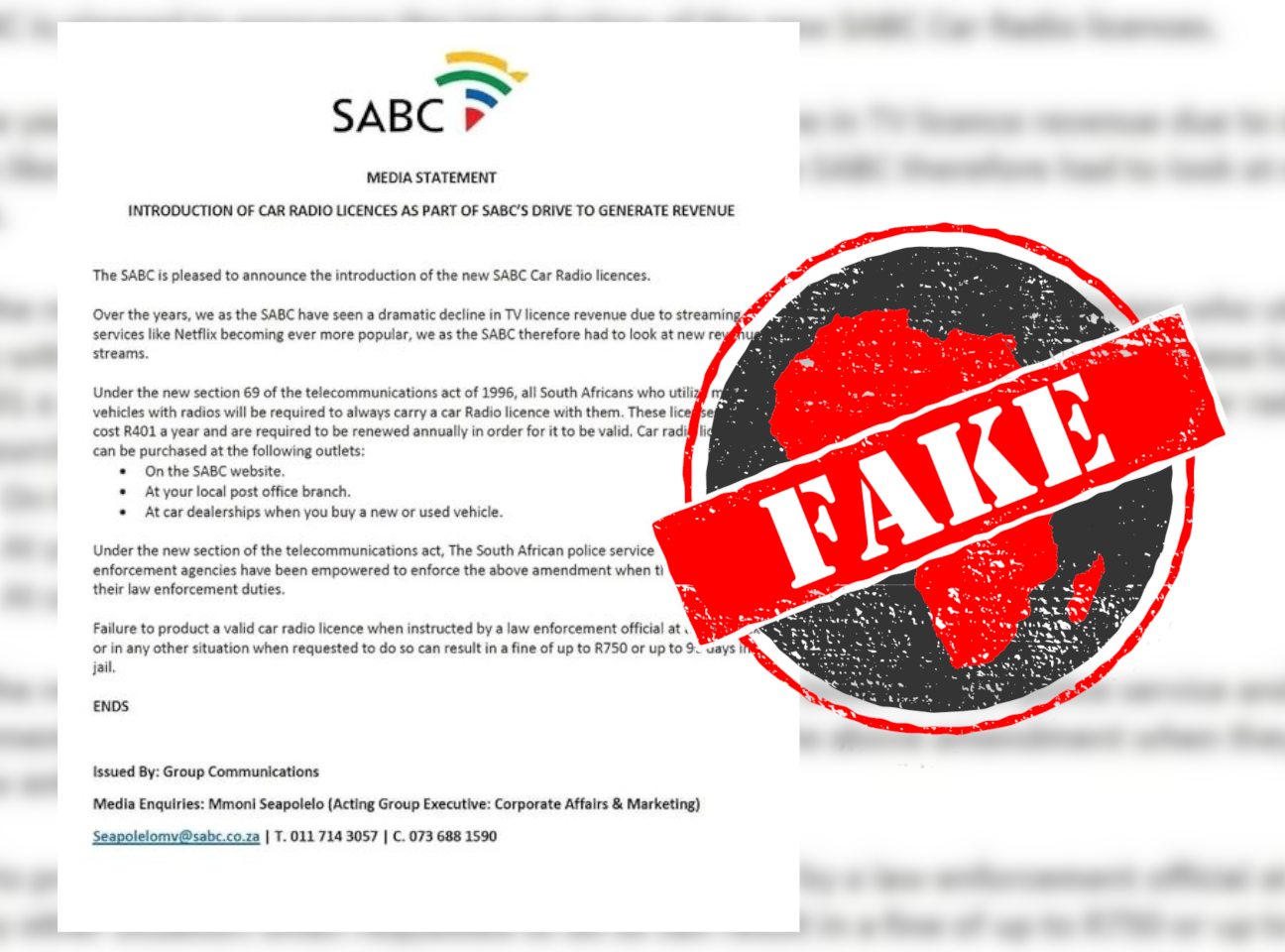IN SHORT: South Africa's national broadcaster has endured many a rocky year and much criticism from the public. So it's no surprise that a statement claiming to introduce annual fees for motorists listening to their car radios was greeted with both anger and joking disbelief. It turns out to be fake.
If you believed Twitter posts on 8 May 2023, the South African Broadcasting Corporation (SABC) had released a media statement, announcing the introduction of licences to be purchased by car radio users.
According to the statement, in a “drive to generate revenue”, motorists would need to buy these licences at a cost of R401 per year. Failing to produce a valid licence could result in a fine or jail time.
The supposed statement gained traction on social media, especially Twitter, garnering hundreds of thousands of views including here and here.
It was also shared on Facebook here, here, and here.
One user wrote: “It’s crazy that I will have to pay a license when I’m not even consuming their garbage content!”
But despite all the hype, the document turned out to be fake.

SABC’s many challenges
The SABC is the country’s official public broadcaster, responsible for delivering radio and television programming throughout South Africa. Like other state-owned entities, the SABC has faced substantial financial challenges, reporting annual net losses and job cuts in recent years.
The SABC has also been plagued by a decline in viewership and questions about its editorial independence and impartiality.
In this context, the statement seems plausible. It says the broadcaster needs “to look at new revenue streams”, and that this is the reason for the radio licence fees.
SABC confirms statement is false
The statement lists Mmoni Seapolelo, the SABC’s acting group executive for corporate affairs and marketing, as a point of contact. But when outlet News24 asked Seapolelo about it, she said no radio licence had been introduced.
The SABC issued a statement on its official website, Twitter and Facebook accounts. It confirmed that the document being circulated was a “false statement”. Chief executive Madoda Mxakwe said: “The SABC has not issued any media statement making such public pronouncements regarding licences for car radios.”
If you are unsure whether a media statement is genuine, a good first step is to visit the official website and social media accounts of the organisation from which the statement appears to have come. This is where most organisations post their media statements.
Republish our content for free
For publishers: what to do if your post is rated false
A fact-checker has rated your Facebook or Instagram post as “false”, “altered”, “partly false” or “missing context”. This could have serious consequences. What do you do?
Click on our guide for the steps you should follow.
Publishers guideAfrica Check teams up with Facebook
Africa Check is a partner in Meta's third-party fact-checking programme to help stop the spread of false information on social media.
The content we rate as “false” will be downgraded on Facebook and Instagram. This means fewer people will see it.
You can also help identify false information on Facebook. This guide explains how.


Add new comment